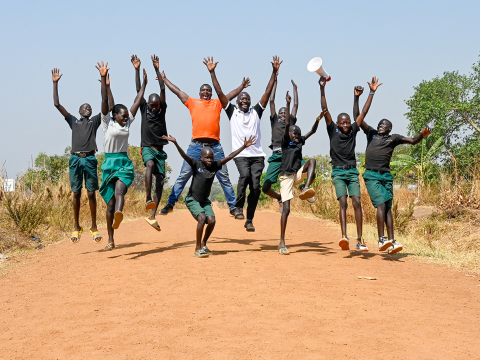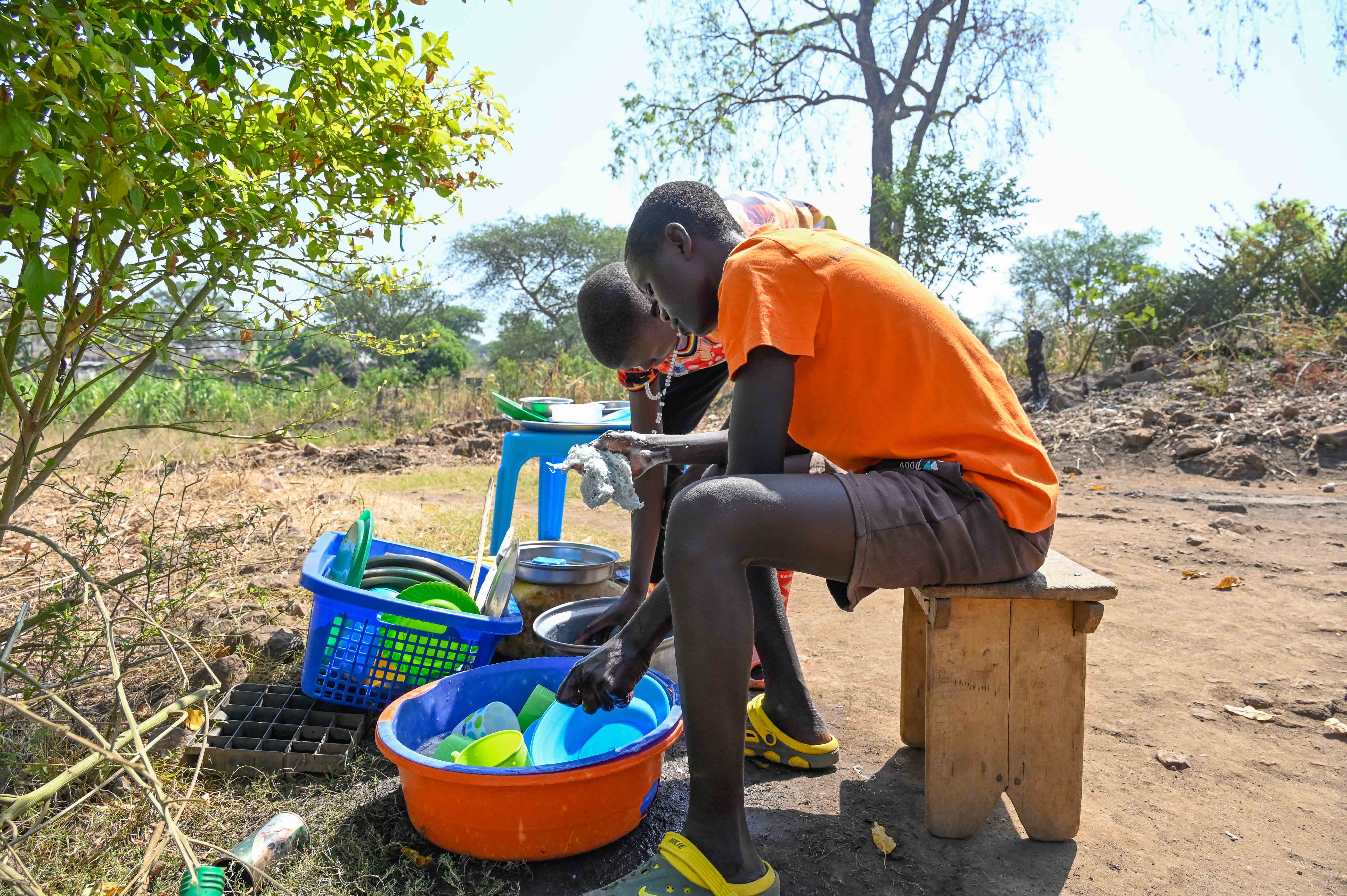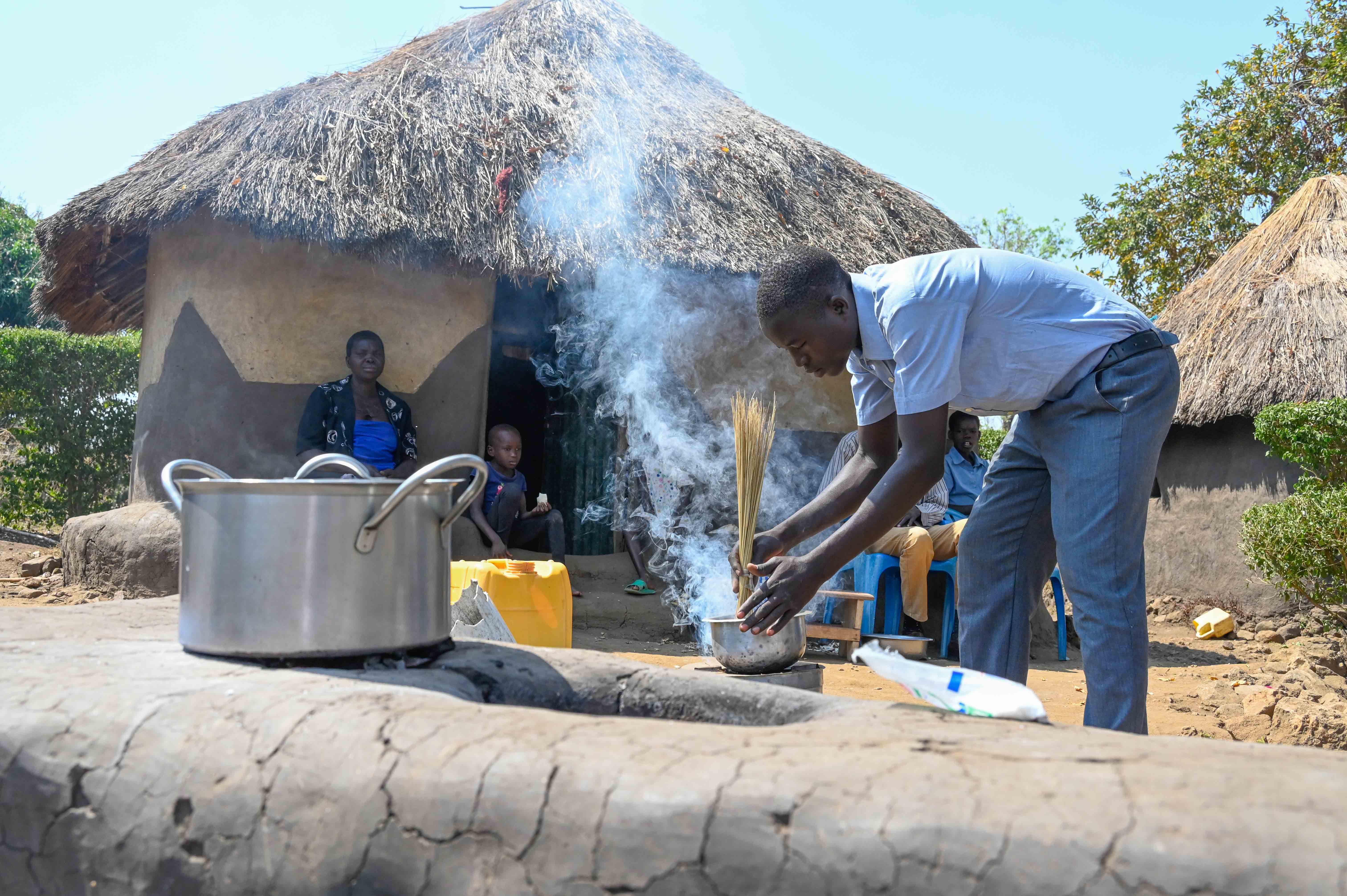Gender equality promoted by teenage boys in refugee settlements.

Teenage refugee boys in Uganda’s northern district of Adjumani are promoting gender equality through Male Action Groups (MAGs). These groups in Maaji and Mungula refugee settlements consist of 15 young boys each. The groups cover two sub-counties; Ukusijoni and Itirikwwa also consist of boys with disabilities.
MAGs are raising awareness about gender roles in families and encouraging male involvement in preventing and responding to violence against children. Through the MAGs, boys are learning to share responsibilities and break down traditional gender stereotypes. The MAGs are formed within schools and are guided by trained patrons who use the male care model to inform discussions on prevailing negative factors affecting boys and girls.
James Loki, 17, a member, shared that before the intervention, he believed that certain household chores were reserved for girls only, but now, he shares all responsibilities with his sisters. “My work was only grazing and digging. Cooking, washing utensils, and cleaning the house were for my sisters. However, the MAGs taught us to share responsibilities, and the work my sisters do, I also do.” James says.
He now accompanies his sisters to go to the bush to collect firewood. “We do most of the work together, and this has helped to create a strong bond amongst ourselves,” James adds.

MAGs are vital in protecting children from harmful practices such as alcohol and drug abuse, which is the leading cause of domestic violence. They are also changing cultural beliefs and creating a safe environment for children to thrive.
“Father and daughter sessions have made fathers understand their roles and how best to protect their children from harmful practices. The biggest hindrance in protecting girls in the settlement is our cultural beliefs from South Sudan. We are focused on changing the mindsets of our parents.” says, Dominic Lotalia,16 a group member.
The groups also encourage behavioral change by asking children to observe their fathers’ actions and address negative behavior. This has also improved reporting and referral of cases to World Vision, resulting in timely responses and preventative measures. “We appreciate World Vision for using a model that encourages child participation. We have noticed change in some families and girls and women now feel appreciated and valued. Child protection and fighting gender disparities is a collective responsibility.” Petros Donggiek, a Refugee Welfare Committee chairperson says.

Stephen Nyuma, a teacher at Kolididi Primary School says the campaigns happen through awareness raising during school weekly assemblies. “Previously, girls dropped out of school before completing their primary school education due to too much housework with little time for school. Last year, however, none of the pupils in the candidate class dropped out which was a great achievement for the school.” Stephen says.
Reagan Acire, the World Vision Child Protection case worker says the refugee community values boys more than they do girls and this is the major challenge they seek to address. “This explains why girls and women are always subjected to gender unfairness. We are encouraged by the results we are registering as a result of the MAGs. Mindset change will enable us to have violence-free communities,” Acire says.

Story and photos by Derrick Kyatuka, Communications Officer, Uganda Refugee Response